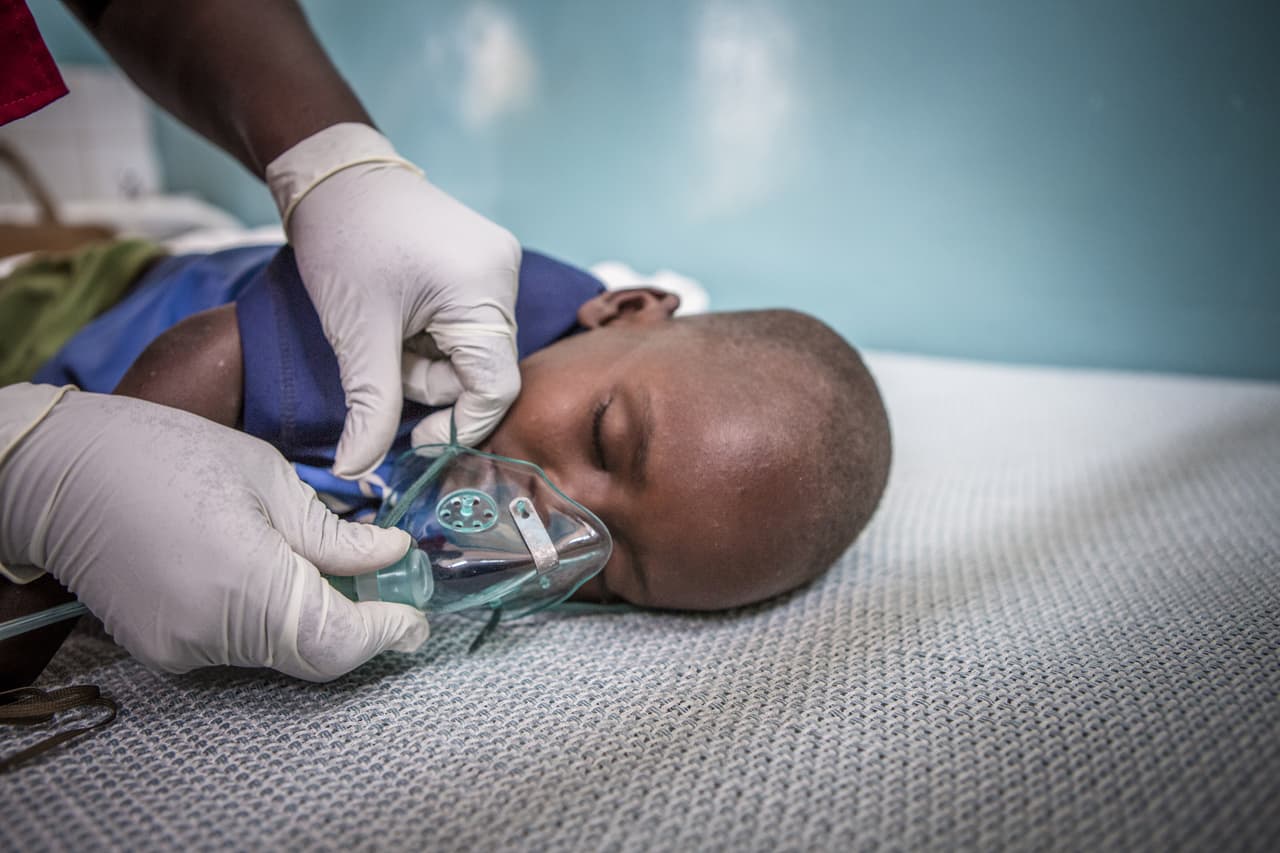
Major milestone in oxygen access at World Health Organization
The World Health Organization has adopted a landmark oxygen resolution which, if implemented, could significantly reduce the huge number of deaths every year due to poor access to affordable medical oxygen – an issue exposed by the Bureau of Investigative Journalism in 2020.
Oxygen is a key treatment for severe cases of Covid-19. As the pandemic took hold, we revealed how two of the biggest gas companies in the world were profiting while hospitals and clinics in Africa struggled with high costs and unreliable supplies of oxygen. A prominent campaigner says this work moved the dial on the issue at a global political level.
“In the early days of the pandemic, the media was instrumental in waking up the global health community to the oxygen crisis that was unfolding across Latin America, Asia, and Africa,” Leith Greenslade, co-ordinator of the Every Breath Counts Coalition, said.
“The Bureau of Investigative Journalism’s expose of the tragedy in August 2020 was a turning point in our efforts to rally an international oxygen emergency response.”
Oxygen is also a vital treatment for pneumonia, and is also used in surgery, childbirth and for those with serious injuries. In 2019, pneumonia killed 2.5 million people, including more than 670,000 children under five. Better access to oxygen and antibiotics could have saved many.
Our reporting also had impact in 2021, when the two multinational oxygen companies mentioned in our piece announced landmark agreements with the global health initiative Unitaid to transform access to oxygen in poorer countries. Evidence we gave to the Every Breath Counts coalition contributed to the negotiations that led to the agreements.
Subsequent reporting by the Bureau that year revealed that Mexico’s two main suppliers of liquid oxygen had been accused of putting profits over patients by spreading misinformation about onsite oxygen plants. We uncovered similar tactics being used in Namibia.
The WHO resolution urges all member states to include oxygen on national lists of essential medicines, which would help ensure it is made available and affordable. It also compels the WHO Director-General to take 11 actions, which include supporting member states to finance affordable oxygen supplies and enabling partnerships between oxygen companies and governments.
Uganda submitted the draft oxygen resolution, which was co-sponsored by Australia, Bangladesh, Central African Republic, the European Union, Kenya and Turkey. It is hoped that the World Health Assembly will adopt it when it meets in May.
Image: A child with pneumonia receives oxygen. Courtesy Save The Children
Author: Miriam Wells
Global Health editor: Chrissie Giles
Production editor: Frankie Goodway
This article is part of our Global Health project, which has a number of funders including the Bill & Melinda Gates Foundation. None of our funders have any influence over the Bureau’s editorial decisions or output.
-
Area:
-
Subject:



